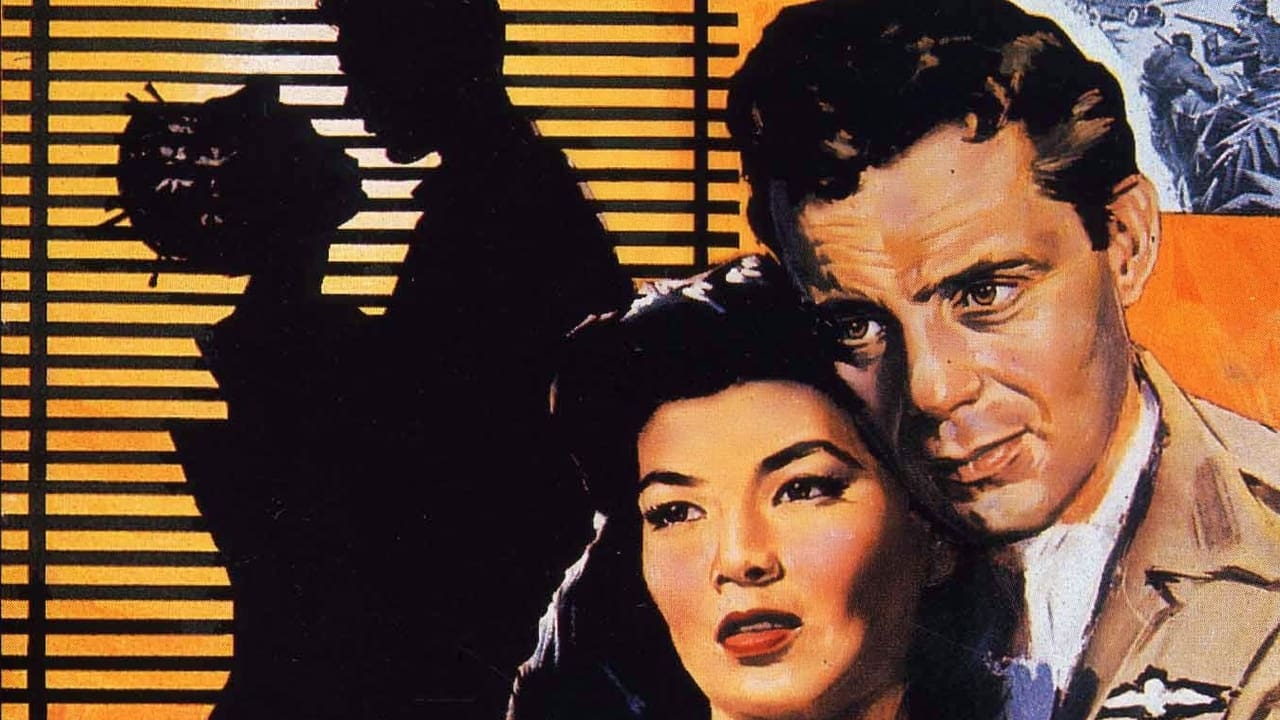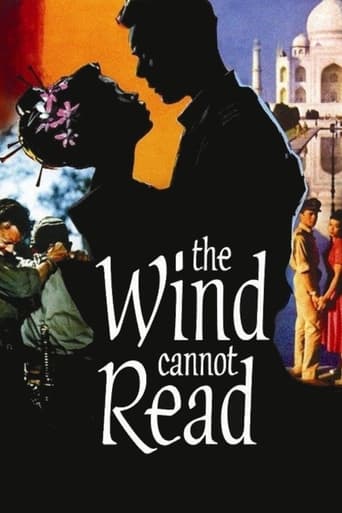

Better Late Then Never
... View MoreBeautiful, moving film.
... View Moren my opinion it was a great movie with some interesting elements, even though having some plot holes and the ending probably was just too messy and crammed together, but still fun to watch and not your casual movie that is similar to all other ones.
... View MoreI think this is a new genre that they're all sort of working their way through it and haven't got all the kinks worked out yet but it's a genre that works for me.
... View MoreA very beautiful melodrama of tragic love set in India in some of its most enchanting places (including Taj Mahal, of course,) under the shadow of the war with Japan. Dirk starts off escaping from them in Burma and ends up their prisoner once again. Between his ordeals he experiences an ideal romance with a Japanese girl who teaches Japanese to intelligence soldiers, one of whom is Dirk. The class sequences are almost the best of the film. Charming music embellishes the film and wraps it up in bitter-sweet romance which never gets too sleazy, since there are constant complications.It's an odd film for Dirk Bogarde and a very singular war and love story, very much akin to William Holden's war and love experiences in Korea and Hongkong, but this is both more idyllic, more intimate and more personal, since Yoko Tani is a more Madame Butterfly kind of girl, more sensitive and vulnerable, and Dirk is delicate enough to treat her with care. so he doesn't make matters worse, as he did in "Simba".The film leaves you with a few question marks, though. Whatever happened to the miserable Fenwick? You can only suppose the worst. But the worst gaffe is the tremendous mistake of Brigadier Anthony Bushell not to immediately turn back when he sees an obvious booby-trap on the road, a dreadful tactical mistake, which no qualified Brigadier would have risked committing. But then without that goof, there would have been no great finale to the melodrama.The most beautiful detail of the film is the symbology, though, which doesn't become clear until afterwards. A sign says that you may not pluck cherry blossoms while they bloom, but the wind cannot read and plucks them anyway, one of those enigmatic but most appropriate Japanese philosophical adages as a motto for the whole film.
... View MoreThis movie is based on a novel by British author Richard Mason, who also wrote "The World of Suzie Wong." In "The Wind Cannot Read," Mason weaves a story that seems to be based on several of his personal experiences in WWII. He studied Japanese and served in the RAF in the Far East, where he interrogated Japanese prisoners. This movie is a rather unique war film. It's one of a small number of WWII movies about the war in and concerning the Far East, especially India. It covers the training of military personnel to speak, read and write Japanese. Is there another film that does that? And, it covers interrogation of Japanese prisoners – something rare in WWII films. These aspects give this film historical value. For that reason, and the very good acting by everyone in the film, I rate it eight stars.The plot and script of the movie are disjointed, and the film in three or four places jumps from one place and situation to another rather abruptly. The core of the movie is a love story that is more believable than most romances in war flicks. The location, encounter and time in the film lend well to the possibility of a meaningful romance. One military situation in the film stands out for its absurdity. That is toward the end when the three officers who are expert Japanese interpreters and interrogators run into the enemy. What were they doing traveling together in a war zone? A single ambush, land mine, air strafing or tossed grenade could wipe out all of the British Japanese linguists in the Far East at once. Under no circumstances would those three men be in a lead jeep driving miles ahead of a convoy. Under no circumstances would they be scouting to set up a new interrogation base in an area that wasn't already secured by their own forces. Under no circumstances would they set out without knowing where they were going and where the enemy was. Yet in this movie, they do all of those things and drive right into the enemy's hands. This was a combat-experienced Brigadier at the head of the group. In real combat, something like this would never have taken place. So, it begs several questions. Was this incident, as portrayed, true to the book? If so, was it meant as a black eye to the British for military incompetence at times? And, if it was not intended as such, why in the world did the filmmakers not change it? They could easily have written another short scenario for Bogarde's injury and then return to his love. But that this scene remains as it is in the film seems to be a jab at the British military for its incompetence at times. And, it shows the serious consequences from such incompetence. Surely, the killing or capture of three highly trained officers as Japanese interrogators would be a huge loss at the Far East war front.
... View MoreDuring World War II, the beauty Aiko Clarke, was one of the several Japanese who taught at the University of London's School of Oriental and African Studies(SOAS). She was immortalized by one of her students, Richard Mason, the author of The World of Suzie Wong, in his first novel The Wind Cannot Read.The Japanese instructors had to be accompanied by SOAS students for their protection, on outings in London. The instructors also taught respect for Japanese culture and life. Otome Daniels's parting words to pupils leaving for India were 'please look kindly on my people'.Mason served in the Far East in the Royal Air Force as an interrogator of Japanese prisoners-of-war. He did his writing in the evenings, often in temperatures of over 100 degrees and carried the manuscript in his jeep during the Burma Campaign.
... View MoreDirk Bogarde in India circa 1943 training to fight the Japanese, falls in love with a self-exiled Japanese woman (his instructor at military language school).Bogarde can infuse any performance with interest and tension. Yoko Tani, the female lead, is not a great actress but hits the right tone. Those familiar with Japan and the Japanese will appreciate that care was taken in the film to make it authentic -- real Japanese actors speaking real and quite appropriate Japanese.Very well photographed with some great scenes of India. A diverting, although not brilliant, film.
... View More